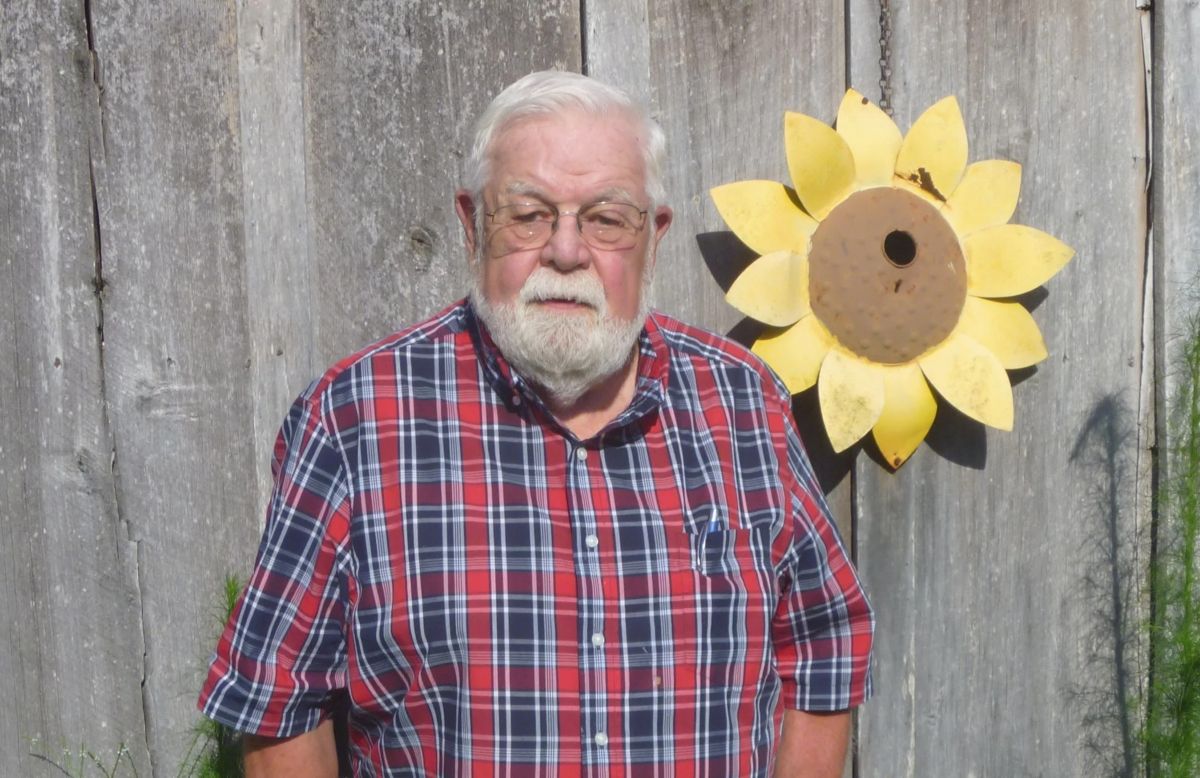
If even half of the funding and policy changes in the pursuit of resiliency, flood mitigation and land conservation make it through the budget process, it would be far and away the biggest effort in the state’s history to meet the challenge of a changing climate.
This year, there is broad consensus across party lines and between the legislature and the executive branch to make bold moves in these areas, spending as much as $1 billion in state money and putting plans in place to draw billions more in federal support.
Supporter Spotlight
But the consensus on flooding and resiliency could prove to be more exception than rule as lawmakers grapple with other strategies and policies that in one way or another address the impacts and causes of climate change.
Although with each year and with each new set of disasters, the risk of doing nothing becomes clearer, the job of putting together policies in an atmosphere in which even the phrase “climate change” is still viewed by many with suspicion remains one of the heavier lifts on Jones Street.
Mark Fleming, president and CEO of the Conservatives for Clean Energy, said polling indicates that while attitudes are shifting about clean energy, “climate change” is still a loaded term for some.
“I would say we are getting there as a state, we really are,” he said. “The problem is if you try to inject the phrase ‘climate change,’ everyone goes to their corners because of the politics of that phrase. It’s not even the policy as much as the phrase. But if you’re talking about sustainability, if you’re talking about lowering emissions, conservatives are there on that.”
There’s no doubt attitudes are changing in the legislature as well, Fleming said. “Ten years ago, this was all viewed as a partisan issue. Today it’s really not.”
Supporter Spotlight
A decade ago, clean energy was only backed by a couple of Republican members, Fleming said, compared to 10 to 15 members today, a number that’s likely to grow with each new class of legislators.
“We’ve come a long way,” he said. “That doesn’t mean there isn’t work to be done on these issues, but we see a growing number of conservatives that are championing these issues. I think you’ll continue to see that and a lot of it is generational.”
Fleming said this year’s resilience and flooding legislation is a good sign that bipartisan consensus is possible. He still expects to see policy battles on how to approach solutions going forward, but the legislature appears more and more willing to take action.
“The need to do something is the driving thing,” he said. “I think we’ll see more and more consensus on that, bipartisan consensus.”

Rep. John Ager, D-Buncombe, said that consensus can’t happen soon enough. Ager, a farmer and small farm proponent, has been trying to pass a bill that would encourage no-till techniques, better use of cover crops and other practices that improve carbon sequestration in soils. It’s the kind of bill that’s passed in other states but he can’t get traction among his GOP colleagues in Raleigh.
“It’s been frustrating,” he said. “We had to be careful to use the right words because it felt like if they heard the wrong words they’d just turn their minds off and I don’t know what the right words are to turn them back on.”
Sen. Natalie Murdock, D-Durham, said she has reason hope that the legislature is moving in the right direction despite language barriers.

“I think a lot of people don’t want to call it climate change, they don’t want to talk about global warming, but they may focus more on ‘we need more renewables’ or ‘we need more diversity in our energy portfolio.’ They may call it something different, but I definitely think that we can achieve that goal even if they don’t have my belief that climate change is real,” she said. “I focus on what we agree on and kind of work from there.”
Murdock said ultimately the legislature’s hand will be forced by circumstances. The recent report from the United Nations’ Intergovernmental Panel on Climate Change and natural disasters have made it clear that the state has to get serious about taking action.
“I think we’ll be forced to,” Murdock said. “I don’t think you can deny the science.”
Heated hearings
Although legislative leaders and Gov. Roy Cooper have found common ground on flooding and resilience, sharp differences remain around greenhouse gas reductions.
Cooper’s call early in his first term for the state to set carbon-reduction targets and to sign on to the Paris Agreement received a cool reception in the North Carolina General Assembly.
This session, opposition to the governor’s carbon-reduction goals heated up during confirmation hearings in the Senate Agriculture, Energy and Environment Committee for Cooper’s two choices to lead the Department of Environmental Quality, former secretary Dionne Delli-Gatti, who the Senate rejected, and DEQ Secretary Elizabeth Biser, who was confirmed last month.
At both sets of hearings, Sen. Paul Newton, R-Cabbarus, and former president of Duke Energy North Carolina, took aim at Cooper’s carbon reduction strategy, making the case that reductions by North Carolina would be costly and ultimately futile given increases in emission in places like China and India.

“Would you agree with me that if North Carolina is the only one that reduces carbon, and everybody else around the world is increasing carbon, North Carolina’s contribution to improving the climate is actually zero?” Newton asked Biser Aug. 17 during her confirmation hearing.
Biser, a former legislative liaison, agreed, but said the state won’t be going it alone.
“If we were the only ones doing it, I think we would get lost in that bucket,” she replied. “Fortunately, we’re joined by a lot of other folks. It’s not everyone, as you point out, but I think this is top of mind for a lot of leaders worldwide.”
Legislators have also recently criticized a move by the Environmental Management Commission in July to accept a petition calling for the commission to begin a process for drafting carbon-reduction rules.
Last week, the House added an amendment to a comprehensive energy reform bill that would prevent the administration from joining a regional greenhouse gas compact without explicit legislative approval.
In a response to Coastal Review on Monday, Cooper spokesperson Jordan Monaghan said the governor would continue to push for emission reductions and that the state would reap the benefits of a clean-energy strategy.
“Climate change poses an existential threat and we must do our part to reduce carbon emissions, but just as important is the economic boost and high paying jobs that North Carolina gets if we lead the way on the inevitable move to renewable energy,” Monaghan said.
Although it’s not spelled out entirely, a major reduction in the state’s overall carbon output is built into major energy legislation now in the hands of the Senate.
The legislation, House Bill 951, Modernize Energy Generation, would accelerate the decommissioning of Duke Energy’s fleet of coal-fired units, streamline solar rules and revamp the state’s energy infrastructure. Hammered out in closed-door negotiations earlier this session, the 47-page bill passed the House 57-49 in mid-July but only after sponsors acknowledged its imperfections and assured their colleagues it would likely undergo substantial changes during the back and forth between the two chambers.
Rep. John Szoka, a Cumberland County Republican and one of the bill’s three main sponsors, said it’s unclear what direction the legislation will take.

He said Senate leaders and the governor have an interest in moving the bill forward. “I don’t know what they’re going to do, they could throw the whole thing away and start from scratch, they could take pieces of it,” he said. The most beneficial thing about House Bill 951 wasn’t the end product. It was the discussions that were raised.”
He said policymakers are trying to strike a balance between increasing renewable energy production, achieving carbon reductions and keeping costs down.
“It’s one of those things where everyone has to give up something,” he said.
Monaghan said Cooper wants to see ideas on renewable energy, ratepayer protection and clean-energy jobs from Executive Order 80, the governor’s 2018 clean energy initiative, incorporated into the bill.
Szoka said that while he’s not sure where the Senate is going on the legislation, he expects that it will likely include fewer mandates and rely more heavily on the state Utilities Commission than the House version.
“I think there’s a path ahead,” he said, “but it’s a process and energy issues are incredibly complex.”
Murdock, who serves on the Senate’s Agriculture Energy and Environment Committee, said she doesn’t support the House version of the energy bill and expects the Senate to make considerable changes, like putting the Utilities Commission back in the driver’s seat on some of the decisions.
The result for the legislation may not be exactly the kind of sweeping change initially promised, she said, but there’s a real chance at progress.
“I know that it still has a long way to go,” she said. “But I think that we’re moving in the right direction. I couldn’t support the initial version of it, but the fact that we’re having serious talks about more coal plant retirements is definitely a step in the right direction.”
Like Fleming, Szoka, who has been in the legislature since 2012, says despite the disagreements over details, attitudes are changing in both chambers and policy is likely to follow.
He said it’s true that the legislature has been generally slower to accept carbon reduction than Congress and other states, but he recalled a similar skepticism about renewable energy.
“When I first got here the view was that it wouldn’t exist without tax credits. Now, it’s a generally more acceptable form of energy by people in both parties,” he said. “Sometimes ideas evolve over time and it takes a period of time to get to where an idea really gets some legs under it.”







